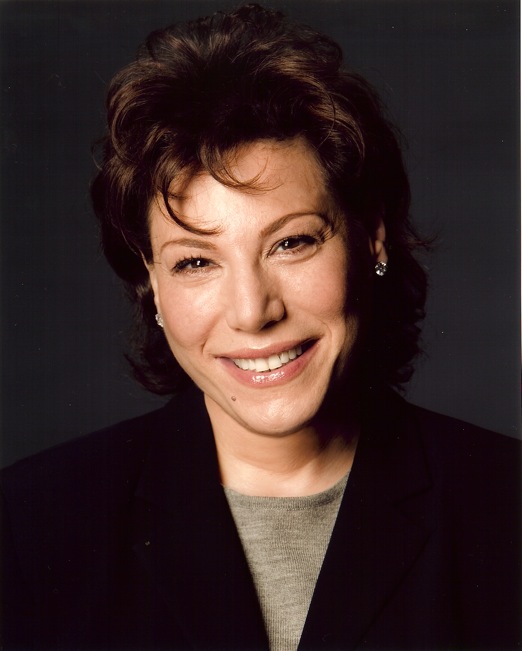Posts Tagged ‘Dr. Fran Walfish’
Dr. Fran Walfish, Psychotherapist to Expert Comment on Governor Jerry Brown Signing Senate Bill 1172
2012


Heidi Smith Luedke reached out to my client, Fran Walfish Psy.D., a Los Angeles-based clinical psychotherapist for her piece in Calgary’s Child about why kids tattle and how to respond.
Here’s the full story:
Nobody likes a tattletale – not even their mother or father. If your child’s playdates and sleepovers are punctuated by whiney reports of misdeeds and injustice, you may be tempted to clear your kid’s social calendar. Not so fast. Interactions with siblings and friends allow kids to practice communication, negotiation and compromise. And dissatisfaction is part of the process.
“In early childhood, it’s normal for kids to share social problems with parents,” says psychologist and school consultant Michael Thompson, Ph.D., author of Best Friends, Worst Enemies: Understanding the Social Lives of Children. At times, they legitimately need our help resolving disputes and soothing hurt feelings. But by second grade, the prohibition against inviting adults into social conflicts is clear. “Kids who tattle get labelled – tattletale, squealer, snitch – and left out,” says Thompson. Bringing infractions to an adult’s attention sets your kid up for friendship failure.
Why kids tattle
Parents might assume kids tattle because they don’t feel empowered to stick up for themselves, says Fran Walfish, Ph.D., a child and adolescent psychotherapist. That’s not true. “Kids tattle because they’ve developed a strong sense of right and wrong and they start policing other people,” says Walfish. Tattletales suffer from an overdose of conscience.
“Tattling at home may also be rooted in sibling rivalry,” says Walfish. An older child might feel they are held to a higher standard than their younger siblings, or that they are disciplined more severely. And they may be right. “Parents need to take an honest look within,” says Walfish. “If you are harsh and judgmental with your children, they’ll act the same way with peers.”
How to respond
It seems obvious: giving attention to a child who tattles will only reward them for tattling. But experts say parents shouldn’t dismiss kids’ reports or tell them to “get over it.” Sometimes kids who tattle just want a safe place to share their concerns.
“Kids won’t say, ‘I need you to listen to this and be outraged on my behalf and then do absolutely nothing,’” says Thompson, “but 90 per cent of the time that is what they want.” When your child comes to you with a story, listen, accept, acknowledge and bear it. Ask questions about how your child plans to handle the situation – that will bring out their inner resilience.
Tattletales who judge and blame are usually more focused on their peers’ behavior than their own. “Position yourself as a mediator,” says Walfish. Kids should present their concerns to each other, not to authority figures. Give each child a chance to speak their piece without interruption or name-calling. You want them to learn how to wrestle with a conflict face-to-face without demeaning the other person.
“This won’t come easy,” Walfish cautions. It is common for parents to get drawn into the dialogue. Step back emotionally so you can coach your child through it without taking sides.
After each child has a chance to talk, ask, “How could you work this out?” Listen to kids’ ideas for addressing the problem. If they don’t have any, offer some suggestions. Let kids choose how to proceed. “The resolution is not nearly as important as the process of working it out,” says Walfish.
Except in extreme circumstances – like when one child is intentionally hurt or belittled – don’t take sides or punish the other child for what a tattletale reported. “Play the role of supportive consultant, not hired gun,” says Thompson. You’ll reinforce the tattler if you act on the information they offered.
Chronic tattling can leave parents feeling frazzled. It may help to arm yourself with kind, matter-of-fact phrases you can use in response, says Walfish. Say, “There are only two grown-ups in this house, and it’s our responsibility to enforce the rules.” Assuring ‘kid cops’ that you are on the job may reduce their need to patrol and shift their attention back to their own activities.
Practice compassion
Not all sharing is tattling, and there will certainly be times when you must intervene to protect your child. Be cautious in your assessment of the situation. “Parents are too quick to define peer behavior as bullying and to accuse other kids, parents or teachers of wrongdoing,” Thompson says. Rushing to judgment reinforces a child’s sense that they are a victim in need of rescue.
It’s usually best to diffuse hurt feelings with empathy instead of going on the offensive. Set the expectation that tomorrow will be a better day. Spend one-on-one time with your child doing something they enjoy. Loving attention can quiet even the noisiest tattletale.
Are gender-neutral toys much ado about nothing? Psychotherapist Dr. Fran Walfish Weighs In
2012

In a recent article by Pamela Stitt in TODAY’S MOMS, my client Fran Walfish, a Los Angeles-based clinical psychotherapist who specializes in children and families shared her views on gender-neutral toys.
Dr. Fran Walfish is the author of The Self-Aware Parent (Palgrave Macmillan).
Here is the full story.

A neighbor frequently asks for help with her elementary-age daughter: rides, baby-sitting, meals. But she never reciprocates. Do you say no, knowing the child is the one who will suffer?
My client, Dr. Fran Walfish says, “You should continue to be generous and help this defenseless child. Someone else might say that saying no is creating reasonable boundaries, but it all depends on your point of view.
“I treat many adults who were raised alone,” Walfish says. “They always talk of one special person who saved them psychologically. Perhaps it was a grandmother, uncle, schoolteacher, the parent of a classmate. As a neighbor to this limited mother and her elementary-age daughter, you have the privileged opportunity to be that special person and rescue this child from a world of isolation.”
You can read the full article here.
Dr. Walfish is the author of The Self-Aware Parent: Resolving Conflict and Buiilding a Better Bond with Your Child.

This Sunday, The New York Times Magazine will feature a story entitled “Red Crayon, Blue Crayon,” by Austin Considine, which poses questions about publishers who sell political literature to children in the form of coloring books.
My client, Fran Walfish, a Los Angeles-based clinical psychotherapist who specializes in children and families, says that “Political coloring books aren’t new, nor are they limited to one side of the ideological spectrum… In the 1990s,.. there were coloring books about changing families, addressing themes like gay parenting.”
For the full story click here.

One big question for parents is what to do when the grandparents idea of discipline is more harsh than their own.
When Heidi Stevens, who writes the “parenthood” column for the Chicago tribune asked family psychotherapist Fran Walfish and author of The Self-Aware Parent (Palgrave Macmillan) to weigh in, here’s what she had to say. “Children from age 3 and up are able to differentiate between their parents’ authority and their grandparents’ authority,” says “A grandparent who misses a child’s emotional cues and doesn’t encourage expression of feeling is not nearly as impactful on the kids as a parent who does so. Not even a fraction.”
To read more click here.

My client, child and family psychologist, Dr. Fran Walfish was asked about Valentine’s Day and people’s expectations. Here is what she said to CNN reporter Emanuella Grindberg.
Dr. Walfish is the author of The Self-Aware Parent: Resolving Conflict and Buiilding a Better Bond with Your Child.

My client, child and family psychologist, Dr. Fran Walfish was interviewed by CBS Los Angeles about the recent scandal at Miramonte Elementary School that has swept the attention of parents across the United States.
Dr. Walfish is the author of The Self-Aware Parent: Resolving Conflict and Building a Better Bond with Your Child.
While its hard to understand how so many kids could be victimized by a teacher for so long — Dr. Fran Walfish says part of the reason is fear.

When Dr. Fran Walfish, author of The Self-Aware Parent: Resolving Conflict and Building A Better Bond with Your Child was asked what to when grown kids move back to their parents, she shared her thoughts on eHow.

Dr. Fran Walfish, a leading child and family therapist in private practice in Beverly Hills, CA., lends her expert advice to the story “When Spouses Clash Over Christmas” on CNN.com. She is the author of The Self-Aware Parent: Resolving Conflict and Building a Better Bond with Your Child.






